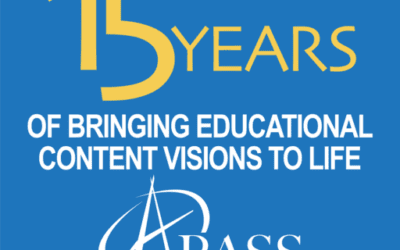Writing Social Studies curriculum entails diverse authorship. Economists, historians, political scientists, sociologists, and geographers are all grouped into a single discipline, but we often forget that the uniqueness of the Humanities subjects is one of the attributes that makes Social Studies writing different when compared to other fields that speak a common language such as math. Regardless of the specific discipline, however, there are six things to know when writing Social Studies courses.
1—“Social Studies” Are Not Homogenous
Imagine for a moment that you were having a surgery performed to correct a heart problem. There is a very specific repair that needs to be made, and it will require the expertise of an experienced cardiothoracic surgeon. You show up on the day of surgery only to find that your procedure will now be performed by a general surgeon. Don’t worry though! They all went to medical school and had to undergo extra training to be surgeons. He’ll figure it out and you’ll be fine. Would this scenario be acceptable to you?
This is the same type of mismatch we often see between curricular experts and end users (professional instructors). It’s no longer good enough to simply assign a Social Studies writer who specializes in European History to create a curriculum for American Economics. The fact that they are both Social Studies specialists is about as comforting as that general surgeon doing open-heart surgery. The best person to write an American Economics curriculum is the writer whose field of expertise is economics.
2—Collaborative Dialogue in Curriculum Writing Is Efficient
The process of writing curriculum from scratch can be a daunting task, especially when the writer has very little interaction with the client school or institution. The best possible scenario is one wherein there is an open and direct dialogue between the two. The writer should feel encouraged to ask the client questions of specificity about their expectations because those expectations are likely to evolve throughout the course of the project. Rather than rewrite and rework sections of content, both parties should have an open line of communication that allows for these differences in vision to be settled long before the final product arrives.
3—History Doesn’t Have an Agenda.
History happened, i.e., there is a true and accurate story. However, there are times when the most respected historians in the world disagree about the exact details of an event. Rather than choosing one side and tendentiously proclaiming it to be the one true story, it’s okay—and in fact more professional—to acknowledge the disagreement in the curriculum. The most fervent and contentious debates in all curriculum writing happen in Social Studies. Whether Christopher Columbus was an explorer, a conqueror, a killer, or a hero is not a matter of perspective. He sailed to the Americas, explored the territory, and claimed it for Spain. The labels are judgments for readers to make and not decisions for writers to make for them. Curricula need to include the details of what Columbus did, how he did it, and the effects of his actions. If we can hold our peers to the highest standard of accuracy and professionalism, then we document only the facts and we leave the interpretation out of the writing.
4—Sometimes You Have to Reinvent the Wheel.
If we were to compile every collection of curriculum written for American History over the past 15 years, we could probably fill a freightliner. Some of it is outstanding work and there is a lot to learn from what is already available. However, the rapidly evolving expectations of the job market, school systems, and governments are calling for curricula to stay on the cutting edge. There are Government and Politics curricula that I like to reference when I’m writing and teaching, but frankly some of them haven’t updated anything other than their copyright since the end of the Cold War. The increasingly interdisciplinary nature of courses offered in K-12 education demands a fundamental reexamination of the way we recycle and reuse material. Matching curricula to clients is an exercise in tailoring, and the investment of time and effort is well worth it.

5—Evaluation Experts Can be a Curriculum Writer’s Asset!
One of the most frustrating situations is to be handed a wonderfully written curriculum but not know how to evaluate learning in a complementary way. Having slowly trudged our way out of the multiple-choice monopoly, Social Studies writers can use the increased freedom to match methods of evaluation with their curricula. While being careful not to overstep into instruction, a Social Studies curriculum writer should be consulting with an expert in testing and evaluation to ensure that the curriculum is being written in a manner that enables good evaluation. When a World History writer can suggest a way to evaluate understanding of the world’s five major religions, then the end user can move beyond a matching exercise and increase the rigor to a written explanation.
6—Plan Your Work
It’s easy for expert curriculum writers to become complacent in their routines. After writing dozens of curricula about similar topics, it is possible to develop writer’s tunnel vision. The best way to guard against this creeping complacency is to plan meticulously before writing. Rather than jumping straight into content, take the time to prepare a plan that meets the specific needs of each client. The content is likely similar, but it is certain that the needs of each client are unique.

Related Blog Posts
Ten Great Resources Every Social Studies Course Writer Can Use






